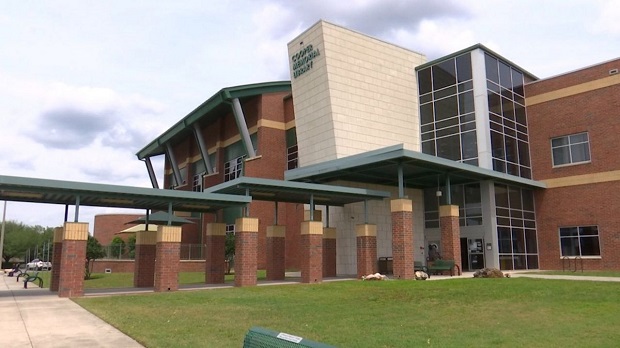At the heart of Florida’s vibrant education system, Florida teachers stand as champions of learning, embracing the challenge of nurturing young minds amid the Sunshine State’s diverse landscape. Their dedication is the cornerstone of students’ journeys, shaping futures with passion and expertise. Facing unique demands, Florida teachers rise to the occasion, embodying resilience and adaptability in each classroom. Join us as we delve into the stories of these educators, their triumphs, and the evolving educational tapestry they weave across the state.
The Impact and Challenges of Florida Teachers
Teaching is a profession that is as rewarding as it is challenging, and nowhere is this more evident than in the Sunshine State. Florida teachers shape the minds of future generations, navigating unique landscapes of diversity, educational policies, and ever-evolving standards. In this comprehensive exploration, we delve deep into the aspects that make Florida’s educators stand out, the hurdles they face, and the triumphs they achieve in their commitment to education.
Understanding the Educational Landscape in Florida
Florida’s education system is diverse, with a range of public, private, charter, and virtual schools across the state. Students come from a myriad of backgrounds, making the teaching environment as rich as it is challenging. Educators must be adept at tailoring their instruction to meet the needs of a diverse student population, including those for whom English is a second language and students with special needs.
- Public Schools: The backbone of the education system, where teachers often work with limited resources.
- Charter Schools: Offering alternative teaching approaches, these schools provide teachers with more instructional flexibility.
- Private Schools: With different curricular mandates, teachers here often have smaller class sizes.
- Virtual Schools: An emerging platform that requires teachers to adapt to an online teaching environment.
The Role of Standardized Testing
Florida teachers face the complex challenge of preparing students for standardized tests that often dictate school funding and performance evaluations. Teachers must balance teaching to the test with providing a well-rounded education.
- FCAT and EOC Assessments: Critical exams that can affect teacher evaluations and school ratings.
- Impact on Curriculum: How test preparation can shift focus from holistic learning.
- Teacher Assessments: The intertwining of student performance on tests with teacher appraisal systems.
Professional Development Opportunities
Continual learning is key for teachers to remain at the forefront of educational practices. Florida offers various professional development programs to help educators enhance their teaching skills.
- State-Provided Resources: Workshops and online courses to keep teachers informed about new methods.
- Conferences and Workshops: Networking and learning events that take place throughout the year.
- Mentorship Programs: Experienced educators guiding new teachers to improve classroom strategies.
Challenges to Classroom Success
External factors can significantly impact the effectiveness of teaching strategies. Florida teachers must navigate these challenges daily to provide quality education.
- Classroom Sizes: Handling oversized classes can dilute the quality of individualized instruction.
- Funding Issues: Resources are often stretched thin, requiring teachers to be resourceful.
- Administrative Support: The level of support from school leadership can vary, affecting teacher morale.
Supporting Students with Special Needs
Inclusion is a critical aspect of Florida’s education policy. Teachers must be equipped to adapt their teaching strategies to support every student’s learning journey, including those with special education needs.
- IEPs and 504 Plans: Developing and following individualized plans for students with disabilities.
- Classroom Accommodations: Adjusting teaching methods and environments to support diverse learners.
- Collaboration with Specialists: Working with school psychologists, counselors, and other professionals.
Advocacy and Union Involvement
Teachers also take on the role of advocates, fighting for better conditions for themselves and their students. Union involvement is a significant facet of this advocacy work.
- Teacher Unions: Understanding their role in negotiations for better pay and working conditions.
- Lobbying for Education: How teachers can influence policy decisions at the state level.
- Community Engagement: Building relationships with parents and community leaders to support educational initiatives.
Embracing Technology in the Classroom
Technology has become an integral part of education, and Florida teachers are at the forefront of integrating digital tools into their teaching methods.
- Educational Software: Utilizing programs that enhance student learning and engagement.
- Online Resources: Leveraging the wealth of information and online platforms to supplement traditional teaching.
- Classroom Gadgets: Implementing smart boards, tablets, and other technology to facilitate modern learning experiences.
Rewards of Teaching in Florida
Despite the challenges, teaching in Florida is a highly rewarding career choice. The impact that educators have on their students extends far beyond the classroom walls.
- Student Success Stories: Celebrating the achievements of students as a testament to teachers’ efforts.
- Community Impact: Recognizing the broader influence of teachers on the community and future generations.
- Personal Fulfillment: The intrinsic rewards that come with helping students learn, grow, and succeed.
Paths to Teacher Certification in Florida
For those aspiring to join the ranks of dedicated Florida teachers, understanding the certification process is crucial. From traditional pathways to alternative certification routes, the state offers several options.
- Education Degree Programs: The conventional route involving a degree in education and student teaching experiences.
- Alternative Certification: Options for individuals transitioning from other careers, including competency-based certifications.
- Ongoing Certification Requirements: The necessity of continuing education and renewal of professional teaching certifications.
Salary and Benefit Considerations
While teaching is a calling for many, it is also a profession. Understanding the financial and benefits landscape is essential for those in or considering a teaching career in Florida.
- Salary Scales: A breakdown of the pay scale based on experience and education level.
- Retirement and Health Benefits: Details on the state-provided retirement systems and health insurance options.
- Negotiating Contracts: Insight into how teachers can advocate for better salary and benefits during contract negotiations.
The role of Florida teachers extends far beyond the confines of the classroom. Every day, they overcome hurdles, adapt to changing educational landscapes, and leave indelible marks on the lives of countless students. Through advocacy, professional development, and a steadfast commitment to their students, Florida educators continue to redefine what it means to teach in the 21st century. Whether it’s embracing technology, catering to special needs, or engaging in community advocacy, Florida teachers are a testament to the tenacity and passion inherent in educators everywhere. As they shape the future one student at a time, their dedication ensures that the state’s educational system remains vibrant and effective, despite the challenges it faces.
What it’s like teaching in Florida lately.
Frequently Asked Questions
What are the requirements to become a certified teacher in Florida?
To become a certified teacher in Florida, candidates must hold a bachelor’s degree or higher from an accredited institution, complete a state-approved teacher education program, pass the Florida Teacher Certification Examinations (FTCE), which includes general knowledge, professional education, and subject area exams, and undergo a background check. Additionally, for those who did not complete a traditional teacher preparation program, Florida offers alternative certification routes that may include passing a subject area exam and completing professional education competency courses.
How does the Florida Department of Education support professional development for teachers?
The Florida Department of Education offers various professional development opportunities for teachers to enhance their skills and stay current with educational standards and best practices. This includes workshops, online courses, and conferences that cover a wide range of topics, from subject-specific pedagogy to integrating technology in the classroom. Teachers in Florida also have access to the Professional Development Certification Program, which provides credits for salary advancement and recertification purposes.
Are there any incentives for teaching in high-need areas in Florida?
Yes, Florida provides incentives for teachers who work in high-need areas, also known as critical shortage areas. These incentives might include student loan forgiveness programs, scholarship opportunities, and additional salary supplements. The state periodically identifies subjects and regions with the greatest need and aligns incentives to attract and retain teachers in these critical areas. Current information on such incentives is available through the Florida Department of Education’s website or local school districts.
What is the process for out-of-state teachers seeking employment in Florida?
Out-of-state teachers looking to work in Florida must hold a valid teaching certificate from their respective state and demonstrate reciprocity eligibility. They are required to apply for Florida certification through the Bureau of Educator Certification, provide official transcripts, and may need to pass the Florida Teacher Certification Examinations. If the teacher’s qualifications meet Florida’s certification standards, they may be awarded a temporary or professional Florida Educator’s Certificate.
How do Florida teachers access resources and materials for their classrooms?
Florida teachers have access to a variety of resources and materials through state-funded programs, district supplies, and digital platforms such as the Florida Statewide Instructional Materials Center for the Visually Impaired and the Florida Electronic Library. Teachers can also utilize the CPALMS platform, which is an online toolbox of information, vetted resources, and interactive tools that helps educators effectively implement teaching standards. Additionally, many districts and schools have partnerships with local businesses and community organizations that provide resources and support for classroom activities.
What is the average salary for teachers in Florida?
The average salary for teachers in Florida varies widely depending on the school district, the teacher’s level of education, years of experience, and specific certifications. As of the data available, the starting salary for teachers in Florida is competitive with a legislated effort to increase it further. For the most current salary figures, teachers should refer to the Florida Department of Education’s website or directly check with the school district they are interested in.
Final Thoughts
Florida teachers stand as pillars of strength and dedication in the educational landscape. They navigate challenges with resilience, shaping the future with every lesson they impart. Their commitment ensures that students across the Sunshine State receive a quality education.
In conclusion, the role of Florida teachers is indispensable. They inspire, educate, and influence countless lives. Amidst evolving educational needs, they remain steadfast, proving that the heart of learning beats strong in Florida’s classrooms.







